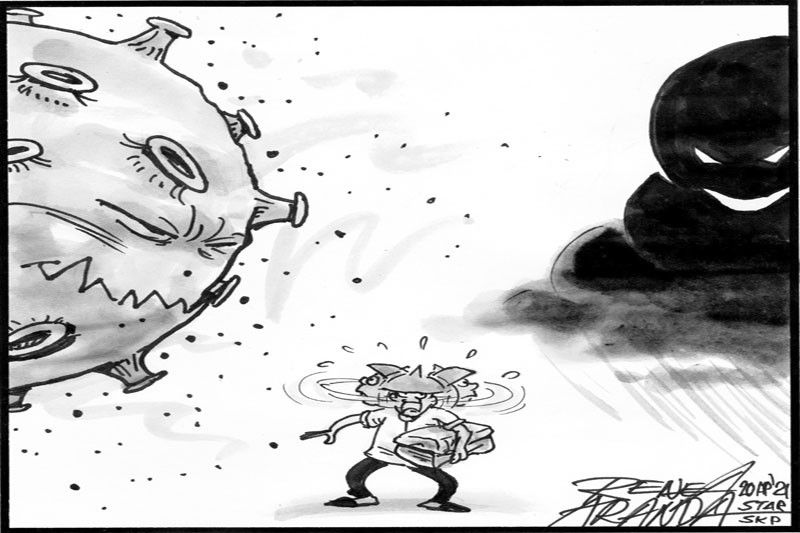EDITORIAL - Another potential super spreader

Bising didn’t intensify into a super typhoon. And it did not make landfall, instead grazing the eastern seaboard of the Philippines as it churned its way northward.
Still, the first major typhoon of the season in the Western Pacific stranded thousands and forced the evacuation of residents over the weekend as it unleashed heavy rain and powerful winds over parts of Mindanao up to the Bicol region.
While it decelerated yesterday morning to 220 kilometers per hour from Saturday’s 305 kph, Bising, international name Surigae, is still a powerful tropical cyclone, equivalent to a Category 4 Atlantic hurricane. And it will continue to move this week near the eastern and central Philippines, where many areas remained under storm warning Signal No. 2 yesterday.
The approach of Bising should remind disaster preparedness officials that even as the country is grappling with an unprecedented surge in COVID cases, the rainy season is fast approaching, and this could complicate the pandemic response.
Health officials have warned that the distribution of lockdown financial aid or ayuda and even the vaccination program itself, if done without strict adherence to COVID health safety protocols, could turn into super spreader events, aggravating the ongoing surge.
Only vaccines can stop this surge, which is looking increasingly out of control and could quickly spread outside the disease epicenter, the National Capital Region and the provinces of Bulacan, Cavite, Laguna and Rizal.
But with vaccines in such short supply, every effort is needed to avoid super spreader events, where health protocols particularly physical distancing are ignored. This situation could emerge in disaster evacuation centers.
The typical evacuation center is a school building or gym, converted into a temporary shelter during typhoons, floods, earthquakes and volcanic eruptions. Such facilities quickly become overcrowded, with water and sanitation facilities always inadequate for the number of evacuees. Diseases quickly spread, with infants and the elderly the most vulnerable.
In some areas in recent years, local government units have acquired modular tents, to give evacuee families some privacy and prevent the rapid spread of pathogens. LGUs must assess their capabilities for providing temporary shelter during natural calamities. With highly infectious coronavirus variants spreading rapidly, there must be health professionals on site to immediately isolate anyone with symptoms of COVID. Even one COVID-positive person can infect everyone in an evacuation center.
It’s still summer, but it’s never too early to prepare for the typhoons. The country was lucky to be spared by Bising. That luck won’t hold for the rest of the year.
- Latest
- Trending





























